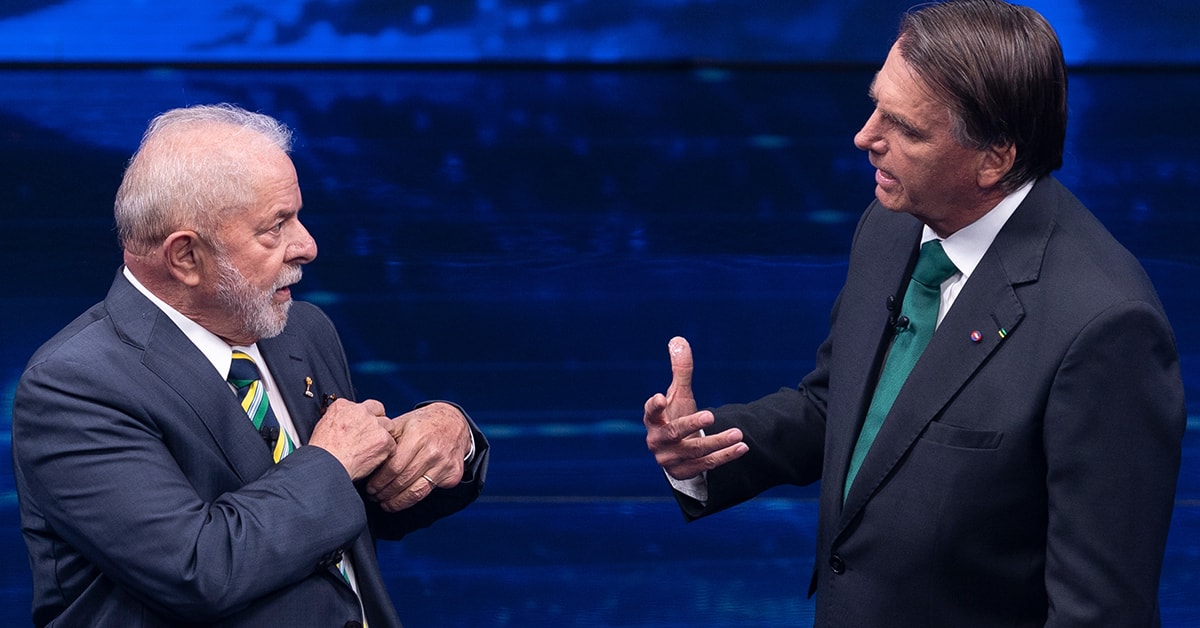The Brazilian election yielded a narrow win for the left, but the outgoing president still has many supporters.

Brazilians voted Sunday in the most polarizing elections the country has seen since it transitioned back to democracy in 1988. Former two-term leftist president Luiz Inácio Lula da Silva, known as Lula, won the run-off elections by a thin margin (50.9%) against the conservative right-wing incumbent Jair Bolsonaro (49.1%). This is the first time a sitting president was not reelected for a second term in office in modern Brazilian history.
But while Bolsonaro may be going, he is not going quietly. His supporters put up roadblocks across the country, and business associations have warned that industrial supplies are already being impacted.
Despite Brazil’s enormous size (larger than the continental US, all of Europe, or Australia) and population (215 million inhabitants), the country tallied the results of almost 124 million votes cast Sunday within approximately three hours of polling stations closing. Its electronic balloting system, which can be independently audited and verified, has won praise the world over since it was introduced, in Brazil’s 1998 elections.
It was nevertheless the target of continuous accusations of fraud vulnerabilities by Bolsonaro in the months before the vote. Internal and international reviews of the system yielded fresh testimony to the security and integrity of the electronic machines, the claims inflamed social divisions. Many wondered whether Bolsonaro would accept a loss or instead emulate the actions of his former ally, Donald Trump.
For two days after Brazil’s Supreme Electoral Court (TSE, in its local acronym) had declared Lula the president-elect, Bolsonaro kept silent, perhaps in the hopes support would emerge. Instead, he was blindsided by some of his staunchest allies who were quick to concede defeat and signal they would not spread political narratives that could undermine the democratic process. Both the presidents of the Senate and Chamber of Deputies (the Brazilian equivalent of the US House of Representatives) congratulated Lula within minutes of the results being announced.
Foreign governments that wished to mitigate the risk of further turmoil in a world already shook by the pandemic and the Russian war on Ukraine, sent a cascade of congratulatory messages and recognition of Lula’s victory through Sunday night and into the week. The White House put out a statement by President Joseph Biden congratulating Lula and praising the transparency of the polls less than 40 minutes after the TSE officialized the results.
Finally, in a two-minute scripted speech that did not mention his rival, Bolsonaro signaled he would not contest the results. Still, Bolsonaro’s silence had been read by some supporters as a green light to protest the election results. Shortly after midnight on Monday, truck drivers started blocking highways across the country. The Federal Highway Patrol, an agency whose director, Silvinei Vasques, is a Bolsonaro ally, received no instructions to respond to these actions. Vasques had already come under fire for stopping vehicles for “traffic inspections” in the heavily pro-Lula northeastern states—inspections that delayed thousands of voters in getting to the polls.
By the time Bolsonaro made his speech, more than 65 partial or complete roadblocks were in place in 22 of Brazil’s 26 states, as well as the Federal District, which encompasses the capital, Brasília. According to economist Denis Medina, a professor at the College of Commerce of São Paulo, the blockades put critical fuel and food supplies at risk, particularly if they persist. The Supreme Court has empowered state police forces to dismantle the blockades.
The threat to the constitutionally mandated transition of power seems to have been resolved for now. After President Bolsonaro’s short speech Nov. 1, his chief of staff said the team had been allowed to initiate transition arrangements with Lula’s team.



